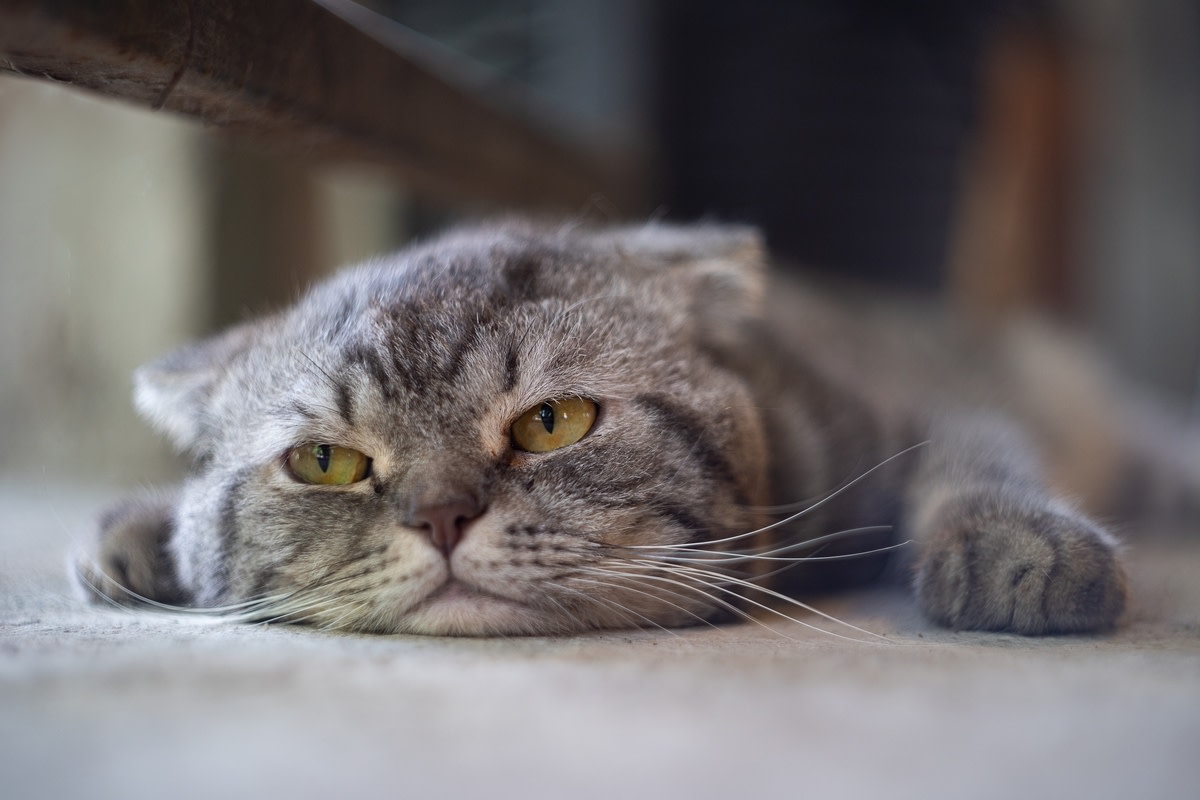
How to Slow the Progression of Kidney Disease in Cats
Image via Shutterstock/Take Photo
Do Cats with Kidney Disease Need Something for Dry Mouth?
“My cat has been diagnosed with the first stage of kidney disease. She is already struggling to even drink water, which is causing her to not be able to eat. My vet said the disease can trouble with the cat’s mouth but didn’t recommend anything for that. She just said to bring my cat back every 2 weeks for subcutaneous fluids, which isn’t helping.
I discovered that she most likely isn’t producing enough saliva and that there are artificial saliva substitutes for cats, but when I tried to look those up, only dental hygiene products came up. I am reluctant to force water in a syringe down my cat’s throat. Can products for humans with dry mouth be used? Potassium gluconate and Nutrical came up but didn’t specify if for dry mouth. Please help.” – Theodosia
I would not recommend trying any of the human products for your cat’s dry mouth. Some of them contain xylitol or other products that may be toxic to your cat.
(Xylitol is much more dangerous to dogs but may may cause problems in cats, too. Artificial sweeteners may not even be listed on the ingredient list in the products sold for humans, as they are considered inactive.)
Treating Dry Mouth in Cats
Yes, you are correct that your cat might have a dry mouth, and a stages of kidney disease to figure out where she is. If she is still in stage one or two, she may not even need subcutaneous fluids, as long as she can get enough fluid sources from her moist food and alternative water sources.
The best thing you can do for a cat with early kidney disease is to never give dry food and provide more sources of water.
(This is not what you are going to be told if you look in your search engine. They are going to tell you that the best thing you can do for your cat is to switch her diet to one of the foods that the site sells or markets. Diet is important, but hydration is even more important, which is why your veterinarian suggested you bring your cat back every two weeks for fluids.)
Ensuring Your Cat Is Hydrated
Cats are desert animals and do not like to drink still water, so she needs to get enough water from her moist food to keep her well hydrated. She is going to need alternative water sources like a water fountain, several flat bowls that have frequent water changes, and a bowl in your kitchen that you can add an ice cube to throughout the day (if you are home) and evening.
Kidney disease is chronic, and there is no cure, only treatment to keep it from getting worse. You can help your cat to still have a good quality of life and enjoy her remaining life if you make some of the changes I suggest here, like switching to moist food. The average survival time for stage 2 cats is about 3 years, but if she is already in stage 4, then it may only be 103 days (although the range was from 1 to 1920 days.) (2)
Get her on a moist food immediately, and get her a water fountain as soon as possible. If she is still dehydrated, you are going to have to take her in to get fluids or if this is too hard, learn
Sources
- Dembowska E, Jaroń A, Gabrysz-Trybek E, Bladowska J, Trybek G. Oral Mucosa Status in Patients with End-Stage Chronic Kidney Disease Undergoing Hemodialysis. Int J Environ Res Public Health. 2023 Jan 2;20(1):835. doi: 10.3390/ijerph20010835. PMID: 36613157; PMCID: PMC9819349. https://www.ncbi.nlm.nih.gov/pmc/articles/PMC9819349/
- Boyd LM, Langston C, Thompson K, Zivin K, Imanishi M. Survival in cats with naturally occurring chronic kidney disease (2000-2002). J Vet Intern Med. 2008 Sep-Oct;22(5):1111-7. doi: 10.1111/j.1939-1676.2008.0163.x. Epub 2008 Aug 6. PMID: 18691369. https://pubmed.ncbi.nlm.nih.gov/18691369/
This article is not meant to substitute for diagnosis, prognosis, treatment, prescription, or formal and individualized advice from your veterinarian. Animals exhibiting signs and symptoms of distress should be seen by a veterinarian immediately.
© 2024 Mark dos Anjos, DVM
